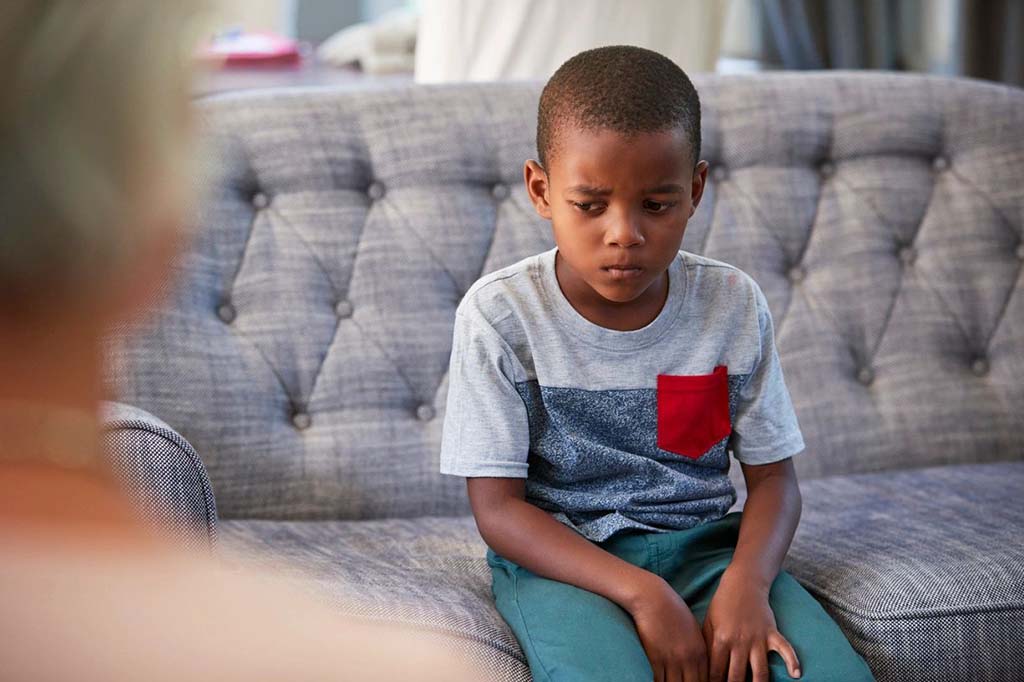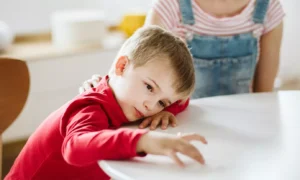10 Early Signs of Mental Health Problems in Children
Parents are often the first to notice when their child is behaving differently from usual. This can be a sign that the child is struggling to cope with a particular situation or issue. Common signs that a child is experiencing mental health problems include changes in eating or sleeping habits, sudden outbursts of anger, withdrawal from friends and activities, and persistent feelings of sadness or anxiety. If you are concerned that your child may be experiencing mental health problems, it is important to seek professional help. A qualified mental health professional can assess the child’s symptoms and provide support and treatment if necessary. Early intervention is essential for helping children to cope with mental health problems and reducing the chances of them developing into more serious conditions.
It’s important to be aware of the early signs of mental health problems in children so that you can get them the help they need. Here are 10 early signs to look out for:
1. Changes in mood or behavior – If your child is suddenly more withdrawn, tearful, angry, or aggressive than usual, this could be a sign that they’re struggling.
As children grow, it’s normal for their moods and behaviors to change from time to time. However, if you notice a sudden or drastic change in your child’s behavior, it could be a sign that they’re struggling. They may become more withdrawn, tearful, or angry than usual. Or they may start acting out in aggressive or destructive ways. If you’re concerned about your child’s behavior, talk to their teacher or school counselor. They can help you to understand what might be causing the problem and how to best support your child.
2. Changes in sleeping patterns – If your child is having difficulty sleeping or is sleeping more than usual, this could be a sign of a problem.
Most children go through periods of time when their sleep patterns change. It is important to remember that these changes are usually just part of a normal growth spurt or phase and do not indicate a problem. However, if your child is having difficulty sleeping or is sleeping more than usual, this could be a sign of a problem. If your child is not getting enough sleep, it can lead to fatigue, irritability, and difficulty concentrate. In extreme cases, sleep deprivation can even cause hallucinations. On the other hand, if your child is sleeping too much, it could be a sign of depression or an underlying medical condition. If you are concerned about your child’s sleep habits, it is best to talk to your pediatrician for guidance.
3. Changes in eating habits in kids– If your child has lost their appetite or is comfort eating, this could be a sign that something is wrong.
Most parents are familiar with the occasional picky eater, but when a child suddenly loses interest in food or starts Comfort eating it can be a cause for concern. If your child is experiencing either of these changes in eating habits, it could be a sign that something is wrong. It could be a physical issue, such as an illness or allergies, or it could be a sign of emotional distress. If your child is Comfort eating, it may be a coping mechanism for dealing with anxiety or stress. If they have lost their appetite, they may be depressed or anxious. If you are concerned about your child’s eating habits, it is important to talk to their doctor to rule out any physical causes and to get the help they need to address any emotional issues.
4. Changes in school performance – If your child’s grades have suddenly dropped or they’re having difficulty concentrating, this could be a sign of a problem.
If you’ve noticed a sudden change in your child’s school performance, it could be a sign that they are struggling with a problem. Grades that have suddenly dropped may indicate that your child is having difficulty understanding the material. difficulty concentrating can be a sign that your child is feeling overwhelmed or distracted. Either way, it’s important to talk to your child’s teacher to get more information about what might be going on. They can offer insights into your child’s behavior in the classroom and may be able to suggest other resources that can help. Don’t hesitate to reach out if you’re concerned about your child’s academic progress.
5. Avoidance of social activities – If your child is no longer interested in spending time with friends or taking part in activities they used to enjoy, this could be a sign that they’re struggling.
It’s natural for children to go through phases where they’re more interested in spending time alone than with friends. However, if your child suddenly stops taking part in activities they used to enjoy or seems to be avoiding social situations, this could be a sign that they’re struggling. Avoidance of social activities can be a symptom of anxiety, depression, or other mental health issues. If you’re concerned about your child’s behavior, talk to their doctor or a mental health professional. They can help you assess whether there’s cause for concern and provide guidance on how to best support your child.
6. Self-harm in children – If your child is harming themselves in any way, this is a sign that they’re in severe distress and need urgent help.
Self-harm is a serious problem that should not be taken lightly. If your child is harming themselves in any way, it is a sign that they are in severe distress and need urgent help. There are many reasons why someone might self-harm, including feelings of hopelessness, worthlessness, or anxiety. Self-harm can also be a way of numbing intense emotions or relieving boredom. Whatever the reason, it is important to get help for your child as soon as possible. There are many resources available to families dealing with self-harm, and with the right support, your child can recover and lead a healthy, happy life.
7. Thoughts of death or suicide in children– If your child is talking about death or suicide, this is a serious sign that they need professional help immediately.
It’s natural for children to be curious about death, and they may often ask questions about what it would be like to die. However, if your child begins talking about death or suicide in a more serious way, this is a cause for concern. If your child expresses a desire to die or seems to be making plans for suicide, it’s important to seek professional help immediately. This is a serious sign that your child is in distress and needs assistance from a mental health professional. If you are worried about your child’s mental health, don’t hesitate to reach out for help. There are many resources available to support families in need.
8. Substance abuse – If your child is using alcohol or drugs, this is a sign that they’re trying to cope with something they’re finding difficult to deal with.
It’s natural for children to be curious about death, and they may often ask questions about what it would be like to die. However, if your child begins talking about death or suicide in a more serious way, this is a cause for concern. If your child expresses a desire to die or seems to be making plans for suicide, it’s important to seek professional help immediately. This is a serious sign that your child is in distress and needs assistance from a mental health professional. If you are worried about your child’s mental health, don’t hesitate to reach out for help. There are many resources available to support families in need.
9. Obsessive or repetitive behaviors – If your child is exhibiting obsessive or repetitive behaviors, this could be a sign of an underlying mental health condition.
Children are naturally curious and often go through phases of repetitive behaviors as they try to make sense of the world around them. However, if your child is exhibiting obsessive or repetitive behaviors that are interfering with their daily life, this could be a sign of an underlying mental health condition. Common signs to look out for include excessive hand-washing, ritualistic body movements, compulsive counting, and repetitive speech. If you notice any of these behaviors, it’s important to talk to your child’s doctor or mental health professional. With early intervention, many children can learn to manage their condition and lead happy healthy lives.
10. Extreme Reactions To Changes Or Events – If Your Child Is Having Extreme Reactions To Changes Or Events (E.G. Overreacting To A Bad Grade At School), This Could Be A Sign That They’re Struggling To Cope.
Parents are often the first to notice when their child is behaving differently from usual. This can be a sign that the child is struggling to cope with a particular situation or issue. Common signs that a child is experiencing mental health problems include changes in eating or sleeping habits, sudden outbursts of anger, withdrawal from friends and activities, and persistent feelings of sadness or anxiety . If you are concerned that your child may be experiencing mental health problems, it is important to seek professional help. A qualified mental health professional can assess the child’s symptoms and provide support and treatment if necessary. Early intervention is essential for helping children to cope with mental health problems and reducing the chances of them developing into more serious conditions.
If you notice any of these signs in your child, it’s important to seek professional help. Call Allied Healers or use our online booking tool to schedule an appointment for an initial pediatric psychiatrist evaluation.


